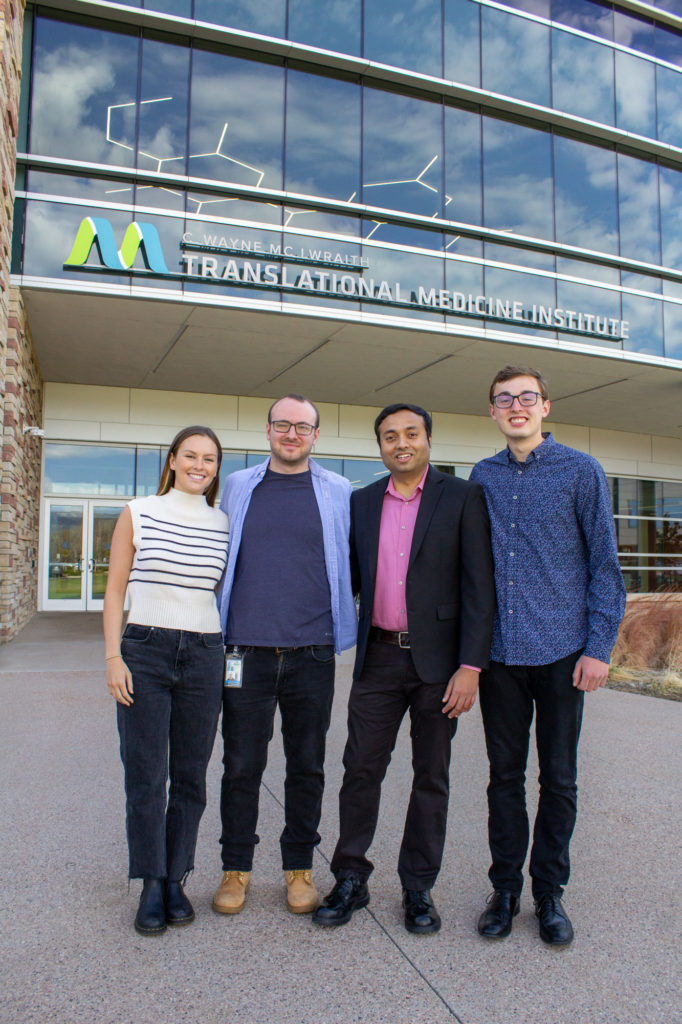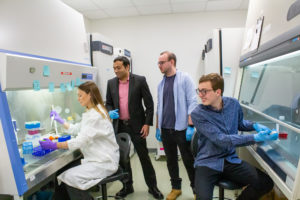
Mechanical engineering Assistant Professor Soham Ghosh has been awarded the National Science Foundation Faculty Early Career Development Award for his cellular mechanobiology research.
The five-year CAREER award is one of NSF’s most prestigious honors, recognizing “early-career faculty who have the potential to serve as academic role models in research and education and to lead advances in the mission of their department or organization.”
The funding will allow Ghosh and his research group to further investigate what causes tissue degeneration when cells and genes are stretched beyond their physiological limit and how the process can be intervened through medicine.
“It means a lot to us because it shows that the scientific community finds our research exciting and sees purpose in our research,” he said of the NSF award. “It’s a great honor, and I feel humbled.”
Cell and tissue stretching is a normal function of the human body, Ghosh explains. “Take a deep breath. During that process, your lungs stretch. Similar stretching is continuously in play inside many of your organs, such as your heart, liver, kidney, and blood vessels. This stretching is critical to maintain the normal function of organs by activating certain genes.”
Different types of cells have various expressed or “active” genes. Genes and the levels of which they are expressed will differ from various types of cells, such as a skin cell and a bone cell. Stretching is one way your body maintains certain expressed genes while keeping others inactive or repressed.
Like with many things, excess is bad. When cells are stretched too far, genes that are supposed to be inactive may become activated. Ghosh is interested in this type of abnormal stretching, which is the probable cause of fibrosis in many organs. Think of fibrosis as tissue scarring—like when you get a cut on your skin, and it scars over.

With aging, many internal organs naturally accumulate small damages over the years. Damage is repaired through the remodeling of tissues, which stretch the cells. In extreme cases, this additional stretching can cause fibrosis, further degenerating the tissues and triggering a domino effect that eventually damages the whole organ.
“For example, when someone has COVID or some chronic lung disease where they have a difficult time breathing, their lungs get more damaged eventually turning into a fibrotic lung,” said Ghosh.
“This is a well-deserved honor and recognition of the future impact of Soham’s research program,” said Christian Puttlitz, department head of mechanical engineering. “He has established himself as a rising star in the mechanobiology field and I look forward to seeing the great things that will come out of his research group.”
“I’m grateful to CSU. Without the support from the Department of Mechanical Engineering and the Walter Scott, Jr. College of Engineering, Translational Medicine Institute, all my colleagues, and especially my students, it wouldn’t have been possible,” said Ghosh.